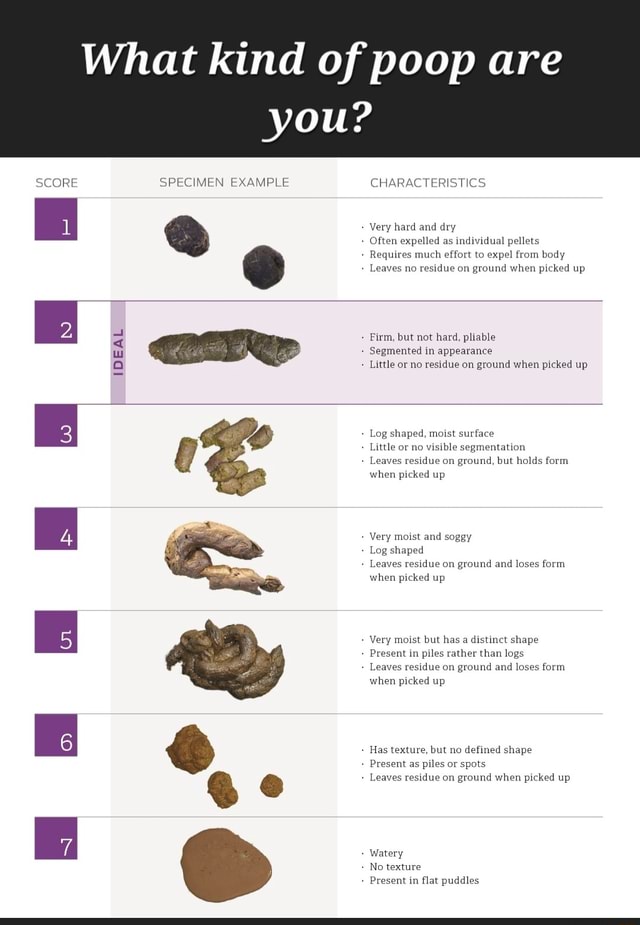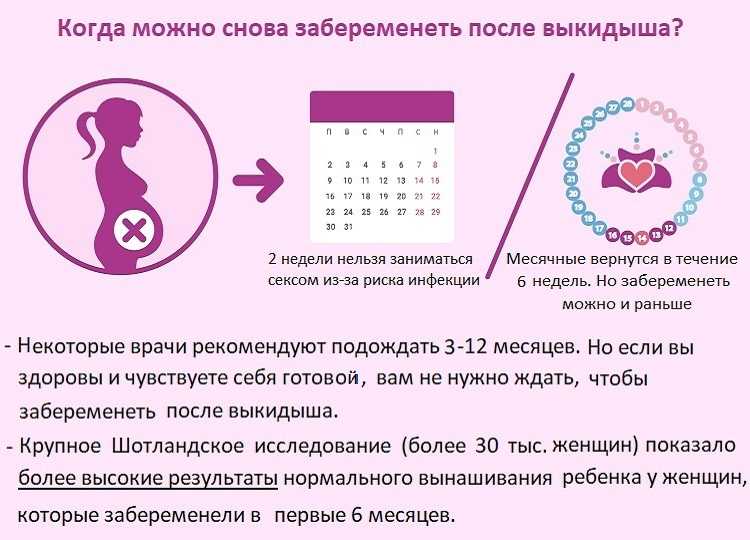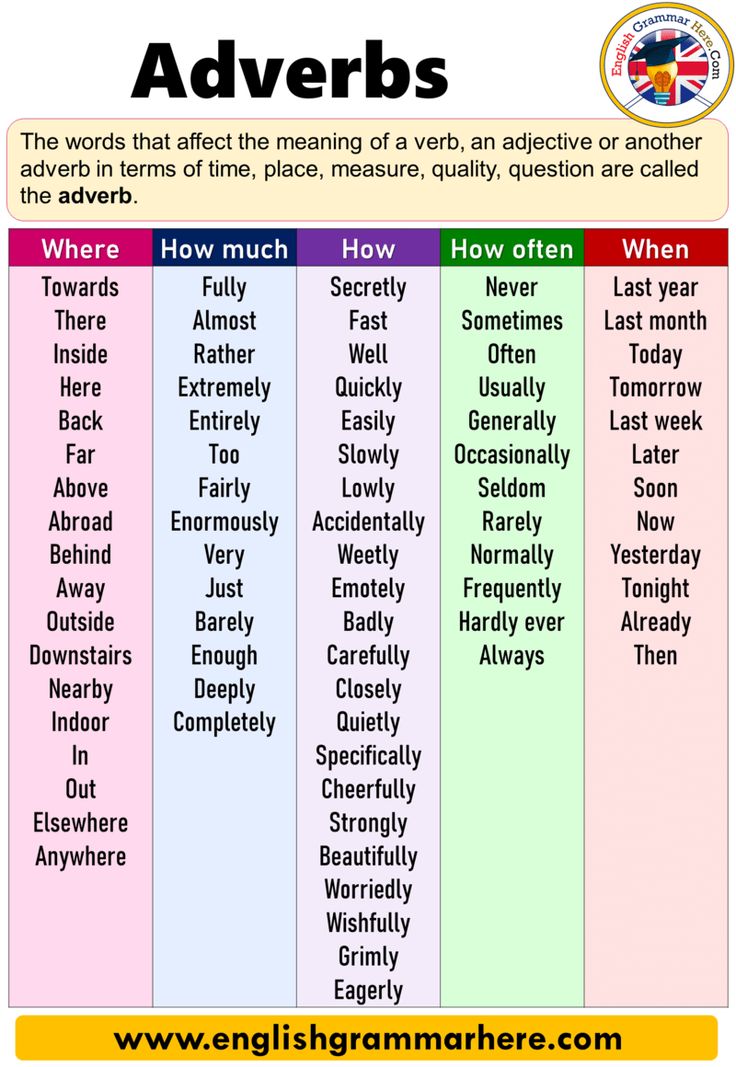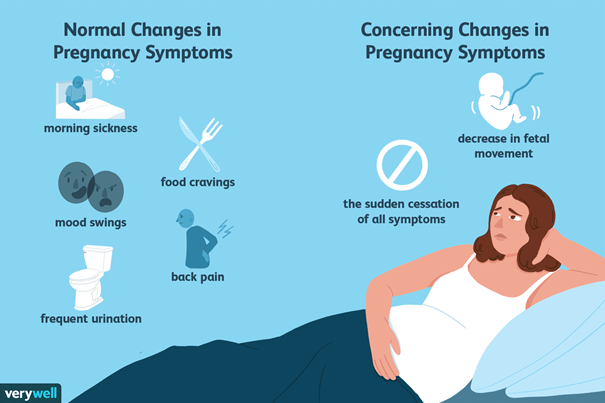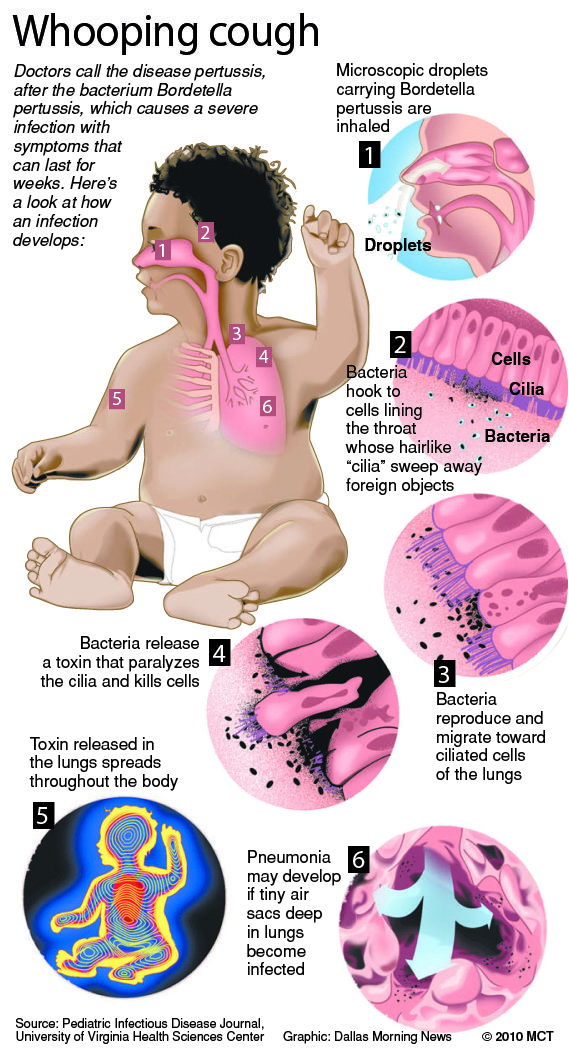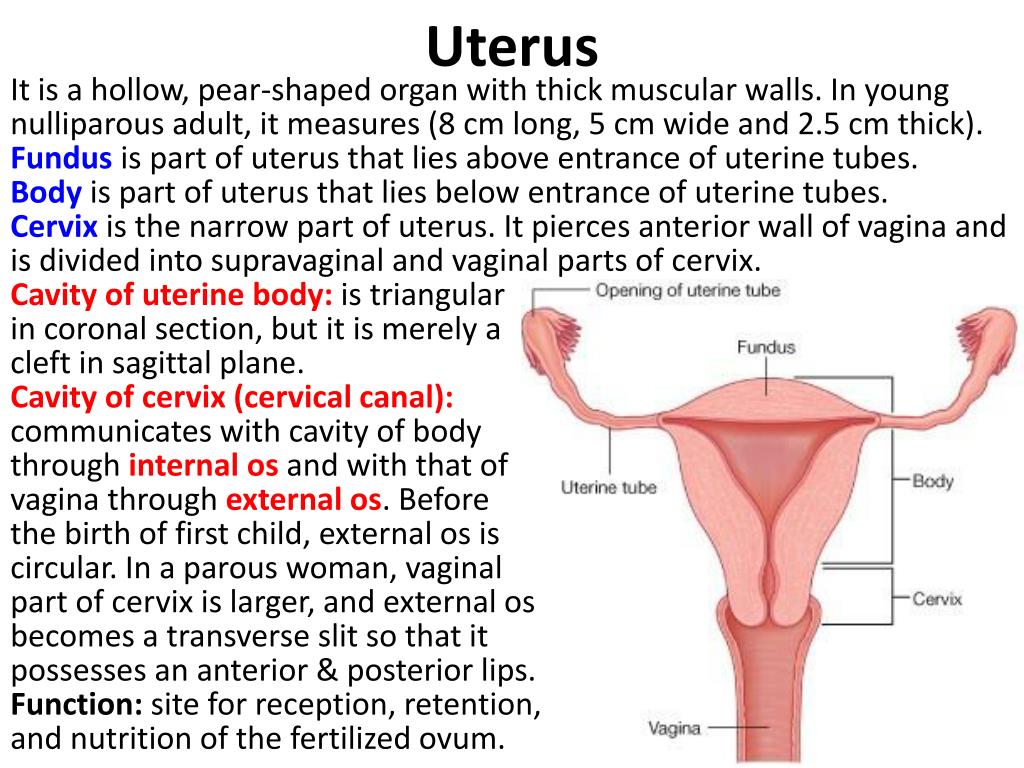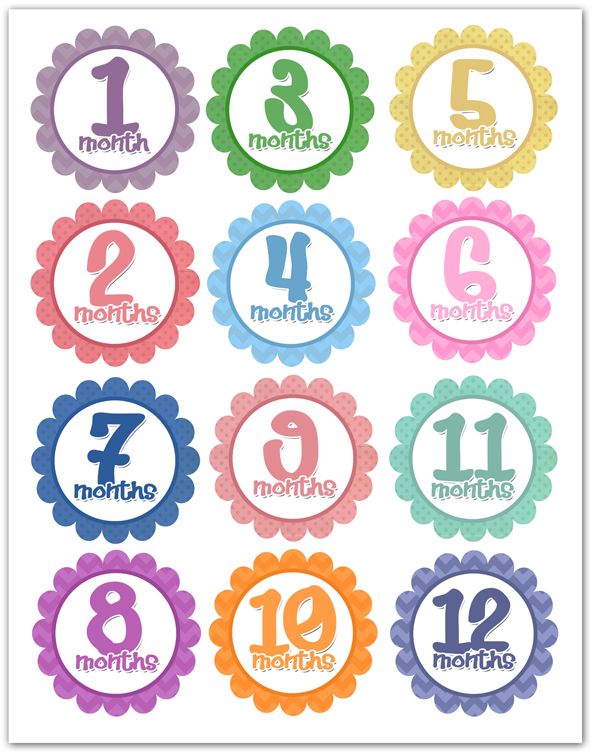How to help a newborn poop when constipated
Symptoms, Treatment and When to Call a Doctor
Nationwide Children’s Hospital
Constipation (con-sta-PA-shun) in infants can worry parents. Most of the time, your baby is not really constipated. They may not have developed a routine for pooping yet. Some babies do not develop a bowel movement (BM) pattern for a while.
An infant’s BM pattern can change if their diet changes, like switching from breastmilk to formula, starting solid foods, or drinking less formula than usual. If your baby’s stool (poop) is not soft or easily passed, then they may be constipated.
In rare cases, constipation may be caused by a lack of nerves going to the intestines or by a problem with the way the intestine formed at birth. Your baby can be tested for these conditions if your health care provider feels it is needed.
Signs of Constipation
- less stools than their usual pattern
- straining more than normal to have a bowel movement
- a change in how the stool looks from soft and mushy to:
- small, hard pebbles, or like a large, round golf ball
- loose and watery
- abdomen (belly) bloated or swollen with gas
- painful cramps
Treatment
- If your baby is not eating baby food yet, you may give 1 to 2 ounces of 100% fruit juice (pear, prune, cherry, or apple) once a day.
Stop the juice if their stools become too loose.
- If they are old enough to eat baby foods, feed them pureed pears, peaches, or prunes instead of giving them juice.
- If your baby eats cereal, it may help to give oatmeal, wheat, or barley cereal. Rice cereal can cause constipation in some children.
- Sometimes giving your baby a warm bath to relax them or exercising their legs, like riding a bicycle, will help stimulate the bowels to move (Picture 1).
- If it has been a few days since your baby has pooped and the juice or pureed food has not worked, then you can try a glycerin suppository. Place your baby on their back. Gently push the suppository into their anus (bottom). Suppositories are meant for occasional use.
- Contact your baby’s health care provider before giving them laxatives, baby mineral oil, or enemas to treat constipation.
Medical Therapy
Your child’s health care provider may order the following treatments:
- Give your child medication.

- Check your child’s temperature using a digital, rectal thermometer. Put a small amount of petroleum jelly (Vaseline®) on its tip before inserting into the rectum. Taking a rectal temperature may stimulate the baby to pass stool.
When to Call the Health Care Provider
Call the health care provider if any of the following occurs:
- Your baby is irritable and seems to be having stomach pain. Infants will pull their legs up to their stomach and cry when they are in pain.
- Your baby has constipation and develops vomiting, and their belly looks like it is bloated or filled with gas.
- You see blood in their stool.
- Their constipation does not get better with treatment.
If you have any questions or concerns, call your baby’s health care provider.
Constipation: Infant (PDF), Spanish (PDF), Somali (PDF), Arabic (PDF), Nepali (PDF)
HH-I-14 ©Copyright 1984, Revised 2022, Nationwide Children’s Hospital
You Might Also Be Interested In
Blog
The Pee Palette: What Do All of Those Colors Mean?
Blog
Pelvic Floor Physical Therapy: How It Can Help
Podcast
PediaCast 503 Your Childs Stomach Part 1
Baby constipation: Top 7 home remedies
If a baby is constipated, a pediatrician may recommend using home remedies as a first-line treatment for baby constipation.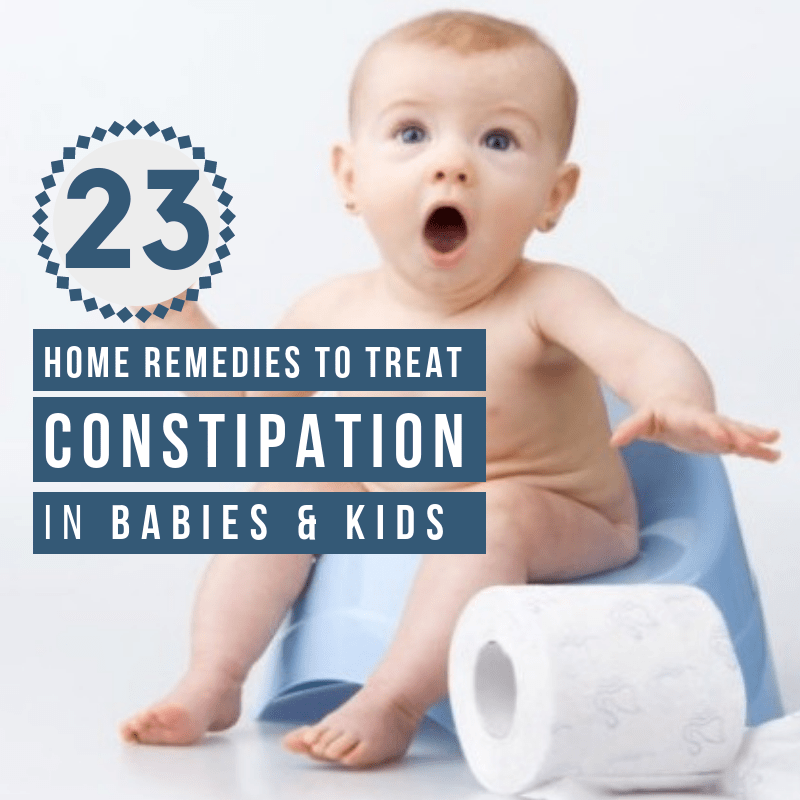 These can include diet changes, exercise movements, and massages.
These can include diet changes, exercise movements, and massages.
Babies often go a long time between bowel movements. Most of the time, it is normal for a baby to go days or even more than a week without a bowel movement. However, a baby may sometimes be constipated and need a little help.
Home remedies for constipation in a baby include:
1. Exercise
Moving a baby’s legs can help relieve constipation.
As with adults, exercise and movement tend to stimulate a baby’s bowels.
However, as babies may not be walking or even crawling yet, a parent or caregiver may want to help them exercise to relieve constipation.
The parent or caregiver can gently move the baby’s legs while they are lying on their back to mimic the motion of riding a bicycle. Doing this may help the bowels function and relieve constipation.
2. A warm bath
Giving a baby a warm bath can relax their abdominal muscles and help them stop straining. It can also relieve some of the discomfort relating to constipation.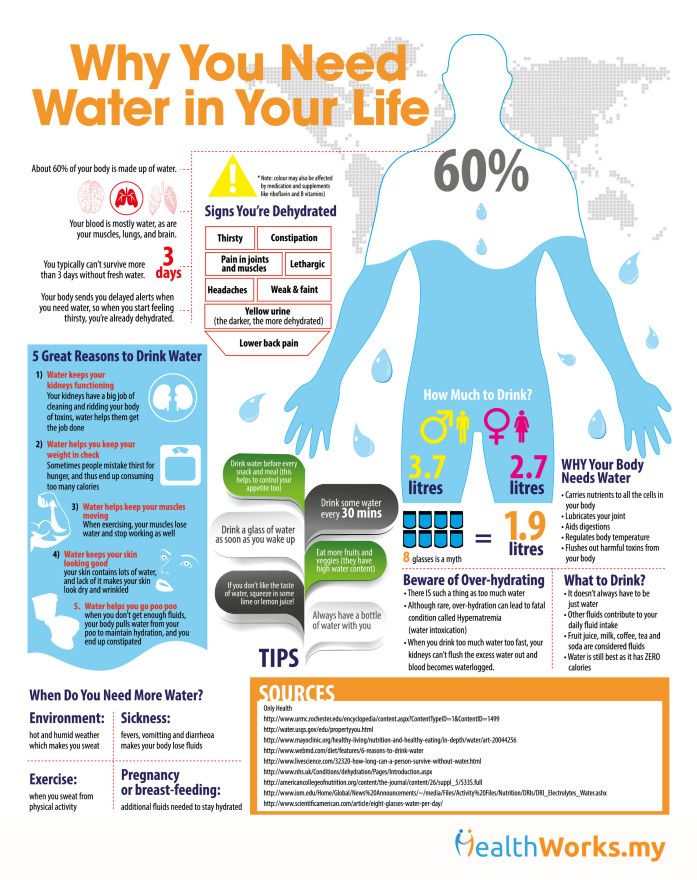
3. Dietary changes
Certain dietary changes may help constipation, but these will vary depending on the baby’s age and diet.
While breastfeeding a baby, a woman could eliminate certain foods, such as dairy, from her diet. It may take some trial and error to identify the dietary changes that help, and it is quite possible that changes in the diet will have no effect on the baby’s constipation.
For formula-fed babies, a parent or caregiver may want to try a different kind of formula. It is best not to switch to a gentle or dairy-free formula without consulting a pediatrician first. If one change does not make a difference, continuing to try different formulas is unlikely to help.
If an infant is eating solid foods, parents or caregivers should look to introduce foods that are good sources of fiber.
Many fruits and vegetables can help stimulate the bowels because of their higher fiber content. Good food choices for babies with constipation include:
- skinless apples
- broccoli
- whole grains, such as oatmeal or whole-grain bread or pasta
- peaches
- pears
- plums
4.
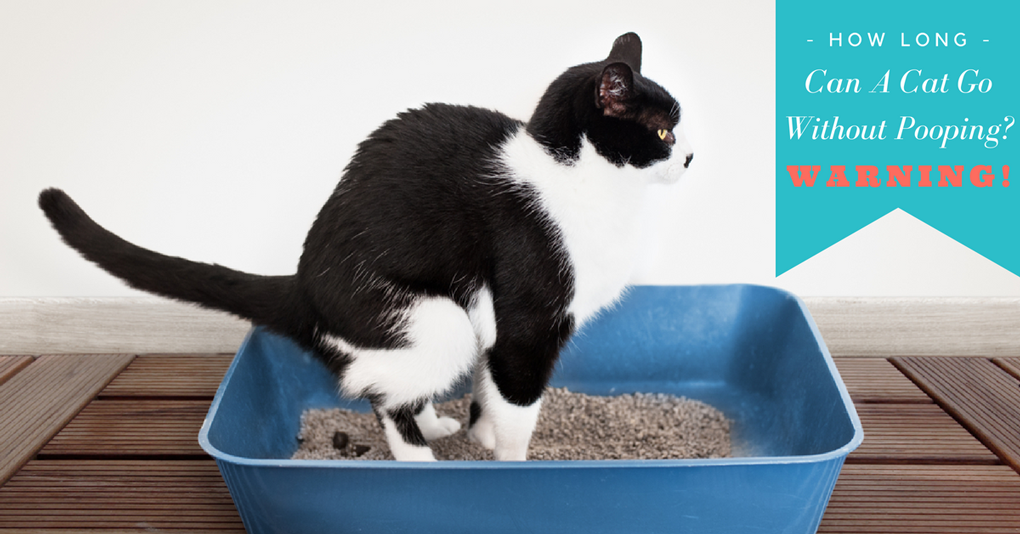 Hydration
HydrationYoung infants do not typically need supplemental liquids as they get their hydration from breast milk or formula.
However, babies that are constipated may benefit from a small amount of extra liquid.
Pediatricians sometimes recommend adding a small amount of water or, occasionally, fruit juice, to the baby’s diet when they are over 2–4 months old and are constipated.
5. Massage
There are several ways to massage a baby’s stomach to relieve constipation. These include:
- Using the fingertip to make circular motions on the stomach in a clockwise pattern.
- Walking the fingers around the naval in a clockwise pattern.
- Holding the baby’s knees and feet together and gently pushing the feet toward the belly.
- Stroking from the rib cage down past the belly button with the edge of a finger.
6. Fruit juice
A small amount of pure apple juice can help soften stool.
After a baby reaches 2–4 months of age, they can have a small amount of fruit juice, such as 100-percent prune or apple juice. This juice may help treat constipation.
This juice may help treat constipation.
Experts may recommend starting with about 2–4 ounces of fruit juice. The sugar in the juice is hard to digest. As a result, more liquid enters the intestines, which helps soften and break up the stool.
However, a parent or caregiver should not give fruit juice to a baby for the first time without consulting their pediatrician.
7. Taking a rectal temperature
When a baby is constipated, taking the baby’s rectal temperature with a clean, lubricated thermometer may help them pass stool.
It is important not to use this method very often, as it can make constipation worse. The baby may start not wanting to pass a bowel movement without help, or they may begin to associate having a bowel movement with discomfort, leading them to fuss or cry more during the process.
Anyone who feels as though they often need to use this method to help the baby have a bowel movement should talk to the baby’s doctor.
As infants may go for extended periods without a bowel movement, it can be hard to tell if they are constipated.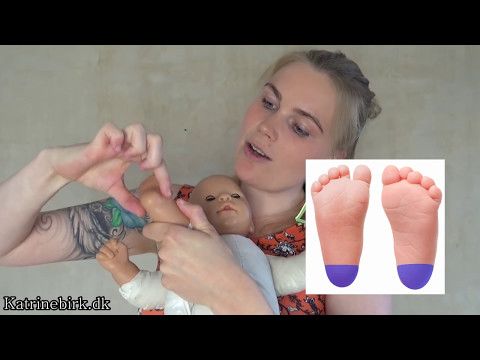 Signs that indicate constipation in a baby include:
Signs that indicate constipation in a baby include:
- infrequent stools that are not soft in consistency
- clay-like stool consistency
- hard pellets of stool
- long periods of straining or crying while trying to have a bowel movement
- streaks of red blood in the stool
- lack of appetite
- a hard belly
Signs of constipation in babies vary depending on their age and diet. A normal bowel movement before a baby begins eating solid food should be very soft, almost like the consistency of peanut butter or even looser.
Hard baby stool prior to solid food is the most obvious indication of constipation in babies.
At first, breastfed babies may pass stool often since breast milk is easy to digest. However, once a baby is between 3 and 6 weeks old, they may only pass a large, soft stool once a week and sometimes even less.
Formula-fed babies tend to pass stool more frequently than breastfed babies. Most formula-fed babies will have a bowel movement at least once a day or every other day.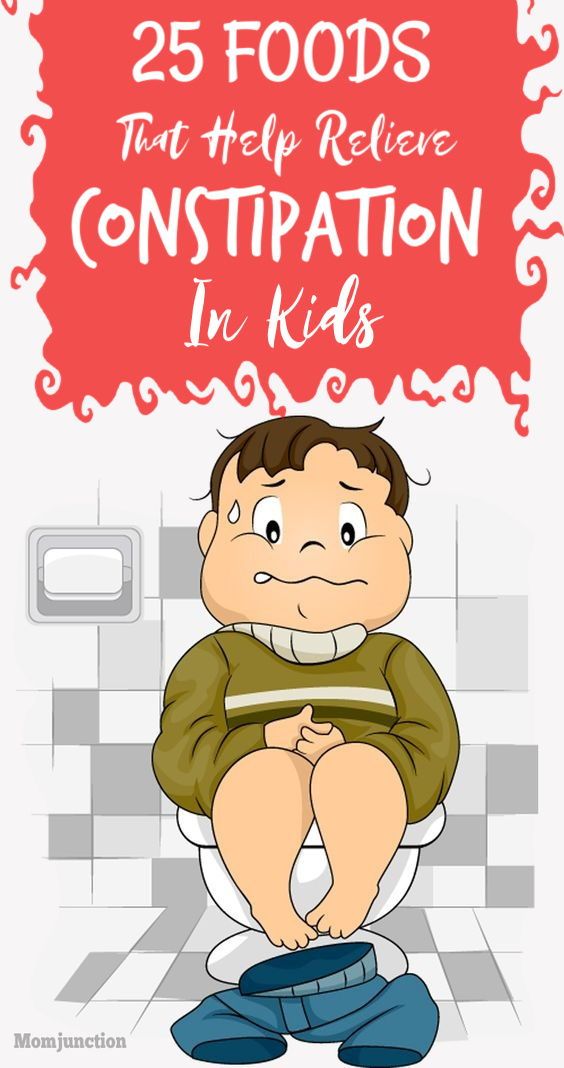 However, some formula-fed babies may go longer between bowel movements without being constipated.
However, some formula-fed babies may go longer between bowel movements without being constipated.
Once a parent introduces solid food to a baby’s diet, a baby may be more likely to experience constipation. A baby may also be more likely to become constipated if a parent or caregiver introduces cow’s milk (other than formula) to their diet.
Share on PinterestA doctor should assess a baby with ongoing constipation.
It is advisable to call a pediatrician if a baby has not passed a stool after a day or two and there are other signs present, such as:
- blood in the stool
- the baby seems to be irritable
- the baby appears to have abdominal pain
- there is no improvement in the baby’s constipation after taking steps to treat it
Treatment typically starts with home remedies. If home remedies do not work, a doctor may examine the baby and, in rare cases, prescribe medications, such as:
- laxatives
- enemas
- suppositories
People should never give these medications to a baby unless a doctor prescribes them.
Constipation can lead to discomfort and irritability in a baby. People can try several at-home methods to help alleviate constipation.
If symptoms do not improve, it is best to speak to the infant’s pediatrician for additional strategies.
Read the article in Spanish.
How to help a child with constipation? – health articles
06/16/2021
Contents
- Causes of constipation in children
- Symptoms of constipation
- Diet
- Gymnastics
- Benefits of contacting MEDSI
Constipation in a child can occur at various stages of growth and development. According to statistics, every fifth baby suffers from problems with stool. In this case, violations can occur already in infancy. With the start of complementary foods, the stool usually improves, which is associated with the introduction of fiber into the diet and an increase in physical activity. After a year, the number of children suffering from constipation is growing again. This is already due to the transition to solid food, the refusal of breastfeeding and the reduction in liquid in the diet.
This is already due to the transition to solid food, the refusal of breastfeeding and the reduction in liquid in the diet.
It is dangerous to neglect constipation!
In fact, their consequences are quite dangerous and can cause:
- baby stress
- rectal deformities
- anal fissures
- general organism intoxication
What to do if the child has constipation?
- Find out the cause of the pathological condition together with the doctor
- Diet
- Pay attention to moderate physical activity
Important! It is forbidden to self-medicate. Laxative suppositories and other means should not be given, as well as cleansing enemas.
It is forbidden to self-medicate. Laxative suppositories and other means should not be given, as well as cleansing enemas.
Causes of constipation in children
The main factors stimulating stool disorders in children include:
- Insufficient fluid intake
- Meals with little or no fiber
- Lack of physical activity
Symptoms of constipation
A pathological condition can be suspected by the following signs:
- the presence of blood (scarlet, fresh) in the stool during the act of defecation and after it in the form of blots (traces) on toilet paper
- rare visits to the toilet for the purpose of defecation (2 or less times a week)
- large large compartments
- the need for strong straining during defecation
- pain in the anus and abdomen
Diet
What can be given to a child for constipation?
This question interests many parents. The fight against the problem should begin not with taking medications, but with changing the diet.
The fight against the problem should begin not with taking medications, but with changing the diet.
Necessary:
- Increase fluid intake
- Establish fractional nutrition
- Add fiber-rich foods to the diet
You should teach your child to drink plain clean water. For babies over the age of 3, 2-3 glasses of water a day are usually sufficient. Avoid sugary carbonated drinks, coffee and tea. This is due to the fact that they have a pronounced diuretic effect and stimulate constipation and dehydration.
Especially useful is the cool water that children drink in the morning on an empty stomach. Gradually, the temperature of the liquid can be reduced. The following drinks also have a laxative effect:
- beet juice
- fermented milk (kefir, fermented baked milk, etc.)
- chamomile decoctions
- dill tea
Important! They should be introduced into the diet gradually, starting with a small amount. Otherwise, you can provoke a breakdown in digestion.
Otherwise, you can provoke a breakdown in digestion.
You should teach your child to drink plain clean water. For babies over the age of 3, 2-3 glasses of water a day are usually sufficient.
The treatment of constipation in children also implies the introduction of laxative products into the diet, which include:
- legumes
- nuts
- prunes and dried apricots
- plum
- beets
- dates
They are also included in the diet gradually and under the supervision of a doctor. Cereal porridges can be useful: oatmeal, buckwheat, wheat, pearl barley. It is advisable to refuse rice, pears, sweets, muffins, animal fats, flour products. They have a fixing effect.
What else to feed the child so that there is no constipation?
The answer to this question should be given by the pediatrician.
Gymnastics
For the prevention of a pathological condition, walking and running, swimming, exercises to strengthen the abdominal press, squats, bends are useful.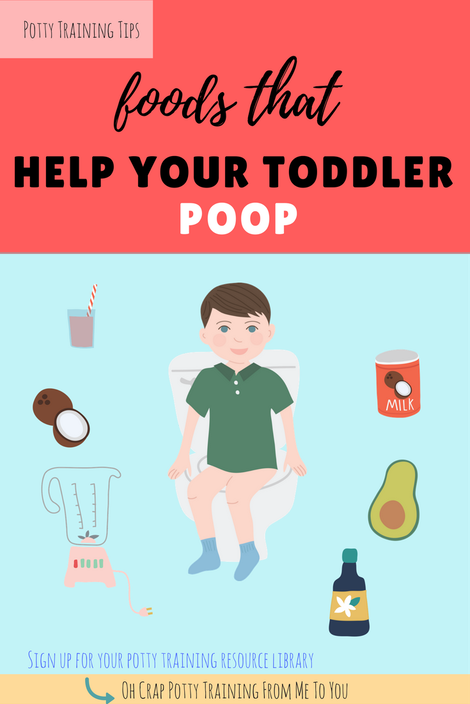
It is believed that mobile, active children are less likely to suffer from constipation. For the prevention of a pathological condition, walking and running, swimming, exercises to strengthen the abdominal press, squats, bends are useful.
If the child is already suffering from stool problems, it is recommended to start the day with simple morning exercises. Massage may also be helpful.
It is important to pay attention to the general change in the behavior of the baby.
The child should be taught to go to the toilet at about the same time, encouraged for observing the daily routine (motivate and praise).
It is also important to create a favorable environment in the toilet. Nothing should distract the child from the act of defecation or scare him in the bathroom.
Benefits of contacting MEDSI
- Help from experienced doctors. Pediatric coloproctologists, gastroenterologists and psychologists work with patients.
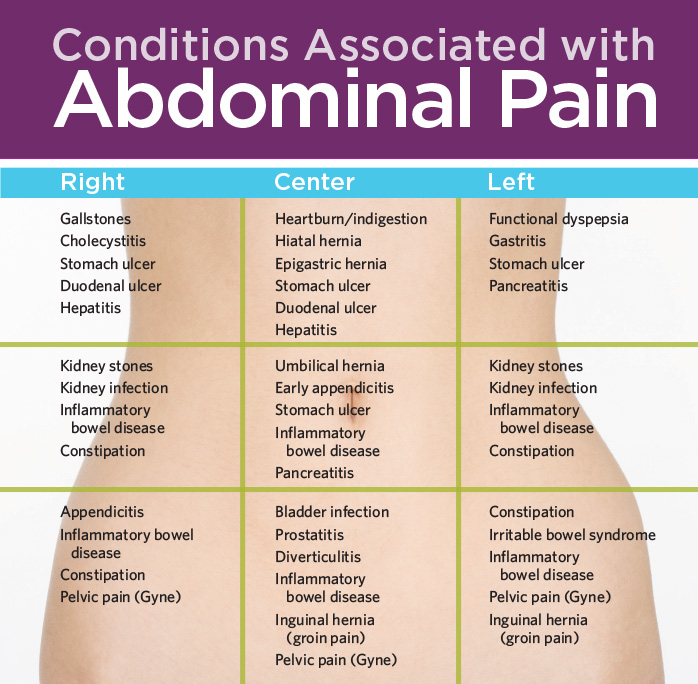 They know exactly how to treat constipation in a child in accordance with the reasons that provoked it
They know exactly how to treat constipation in a child in accordance with the reasons that provoked it - Diagnostic options. The clinic can conduct comprehensive examinations. They allow you to identify the causes of the pathology, find out how and what causes constipation in a child, help him as soon as possible
- Comprehensive approach to troubleshooting. Doctors not only recommend diet and gymnastics. If necessary, specialists prescribe laxatives, antispasmodics, as well as agents that stimulate the evacuation of feces (enemas and suppositories). All drugs are selected individually
- Prevention of complications. To prevent the undesirable consequences of constipation, regular examinations by a coloproctologist are mandatory
- Comfort of visiting clinics. We provide timely consultations without queues at a convenient time for patients
To make an appointment, just call 8 (495) 7-800-500. Our specialist will answer all questions and suggest the best time to visit a doctor.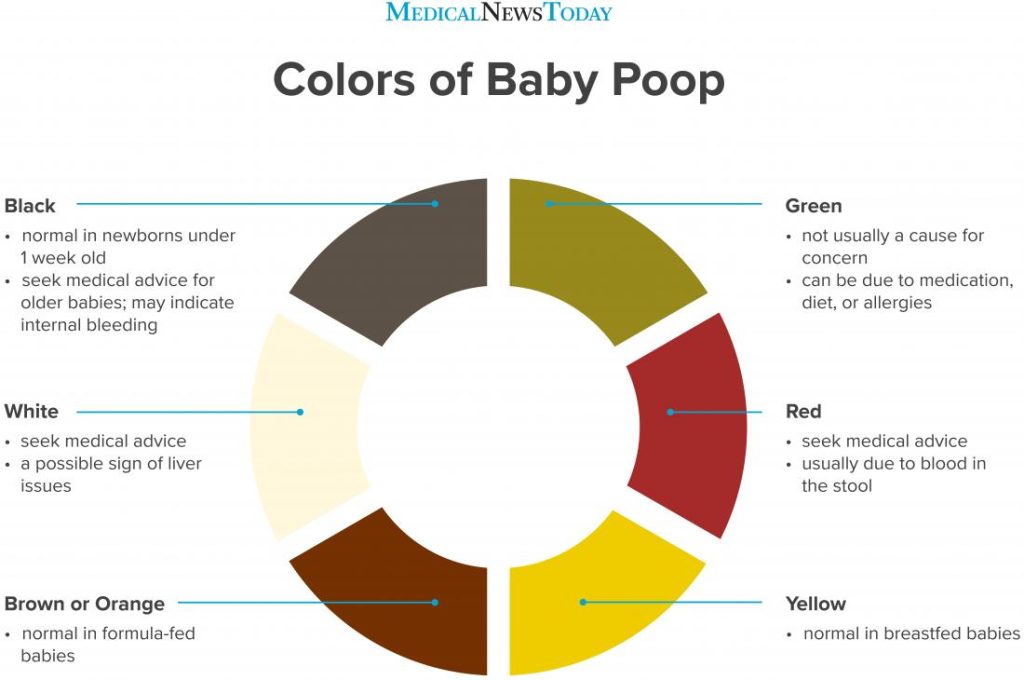 Recording is also possible through the SmartMed application.
Recording is also possible through the SmartMed application.
Do not delay treatment, see a doctor right now:
- Pediatric gastroenterologist consultation
Constipation in a child 1-6 months old - what to do, how to treat? 7 home tips for constipation from Professor Nyankovsky
- Home
- Knowledge Base
What most often worries a child and his parents in the first months of life, with what parents most often turn to pediatricians or family doctors during the first year of a child's life?
- Colic
- Regurgitation
- Locks
- Diarrhea
- Child anxiety,
- Bloating
C constipation in a child early age
Constipation in infants occurs in almost every third baby! In the first days of life, your baby will have bowel movements, often referred to as meconium. This is a thick black or dark green substance that filled the intestines before birth, and as soon as the meconium has passed, the stool will become yellow-green . What's next?
This is a thick black or dark green substance that filled the intestines before birth, and as soon as the meconium has passed, the stool will become yellow-green . What's next?
- If your baby is breastfeeding - his stool usually resembles grainy mustard . Until he begins to eat solid food, the consistency of the stool can vary from very soft to semi-liquid and liquid.
- If the baby is fed formula milk - his stool will usually be brown or yellow
- But if he eats hypoallergenic mixtures or with deep protein hydrolysis, the stool can be green . This is fine. If your baby is breastfeeding or formula-fed, hard or very dry stools may be a sign that he is not getting enough fluid or is losing too much due to illness, fever or heat.
Signs of constipation. How often should a small child poop?
How often should a small child poop?
In the first couple of weeks after birth, the frequency can be equal to the number of feedings, then it is usually set to 1-2 times a day . We will talk about constipation when:
- The intervals between bowel movements will be increased, compared to the age norm, for example, two or fewer bowel movements per week
- If defecation will be accompanied by significant straining of the child , anxiety, crying
- When we see clay-formed feces, hard feces, sometimes in the form of "sheep feces" , fragmented, in small portions, bloody
- If you notice that the baby is in pain during bowel movements, the bowel movements are abnormally long, there are small cracks in the skin around the anus or the baby has a hard stomach
Speaking of constipation, there are two pieces of news: good and bad.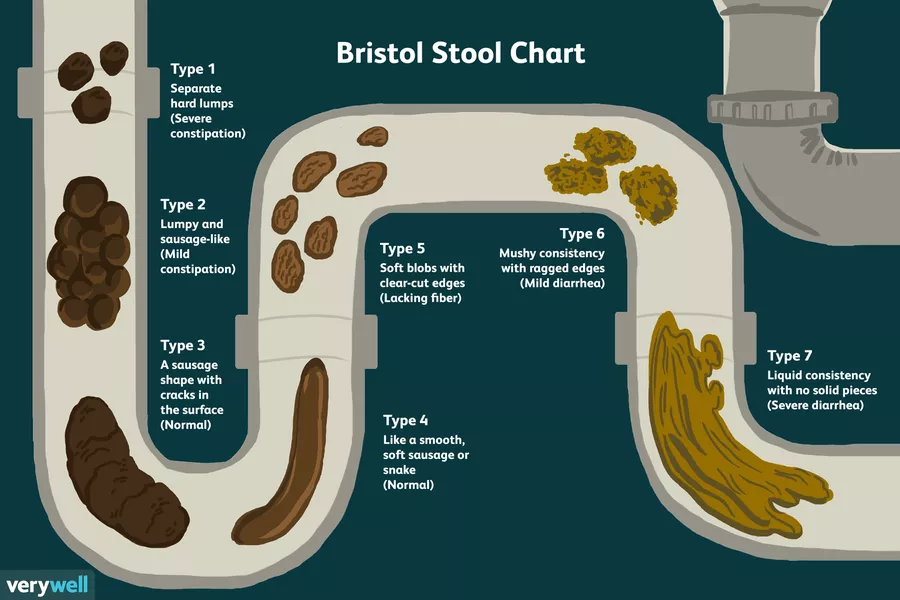 The bad news is that they occur frequently, the good news is that 95% of them are functional in nature, are treated quite effectively and do not require the intervention of a pediatric surgeon.
The bad news is that they occur frequently, the good news is that 95% of them are functional in nature, are treated quite effectively and do not require the intervention of a pediatric surgeon.
The main reasons for the development of functional constipation in children of the first year of life are as follows.
- Alimentary i.e. food. Early or rapid transition to artificial feeding with low-quality mixtures or mixtures that contain alpha palmitic fatty acid, improper daily and nutritional regimen for the mother, non-compliance with the drinking regimen by the mother and child, violation of feeding (underfeeding, improper introduction of complementary foods, monotonous nutrition and violation of its regimen, frequent change formulas, high iron formula feeding
- Cow's milk protein intolerance, ie. food allergy
- Iron deficiency
- Not enough milk
- Maternal hypogalactia, inefficient suckling (malformations of the oral cavity, general weakness), frequent regurgitation and vomiting cause constipation.
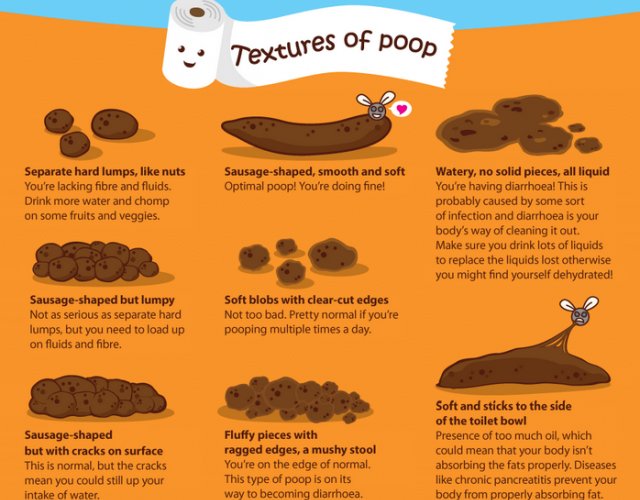 In this case, the feces become dark, viscous and scarce. The child urinates less and less, gains weight poorly
In this case, the feces become dark, viscous and scarce. The child urinates less and less, gains weight poorly
How to diagnose constipation and what to do?
It is necessary to assess the general condition and weight of the child, how much milk he receives per feeding and per day by weighing before and after feedings, if he is breastfeeding, and to correct nutrition if necessary.
Formulas for constipation
Previously, after a baby was placed on formula, most children developed constipation. This was often due to the presence of a fatty component in cow's milk in the form of alpha palmitate , which is converted in the intestines into a substance that causes fecal hardening. Cow's milk protein often caused allergic reactions, which were manifested by a violation of peristalsis, the absence of prebiotics-oligosaccharides in cow's milk did not allow normal intestinal microbiocenosis to form, which also affected intestinal motility. Now the situation has changed, most infant formulas are as close as possible in their composition to the parameters of breast milk and do not cause such a problem.
Now the situation has changed, most infant formulas are as close as possible in their composition to the parameters of breast milk and do not cause such a problem.
Therefore, switching to artificial nutrition make sure that the mixture contains a fat component in the form of beta-palmitate , contains prebiotics galacto- and fructo-oligosaccharides in a concentration ratio of 0 ml ., partially hydrolysed protein, such as in Nutrilon Comfort 1
Cow's milk protein allergy and constipation
If constipation is associated with cow's milk protein allergy, the child may additionally have rash and dry skin, itching , ie symptoms of atopic dermatitis, or blood in the stool in case of gastrointestinal allergy. How to check if this is the cause of constipation? Try an elimination diet. If the mother is breastfeeding, it is necessary to exclude all dairy products from her diet for 3-4 weeks (and do not forget to give her calcium supplements in an amount of at least 1 g per day), if she feeds with mixtures, give the child mixtures with deep protein hydrolysis, i.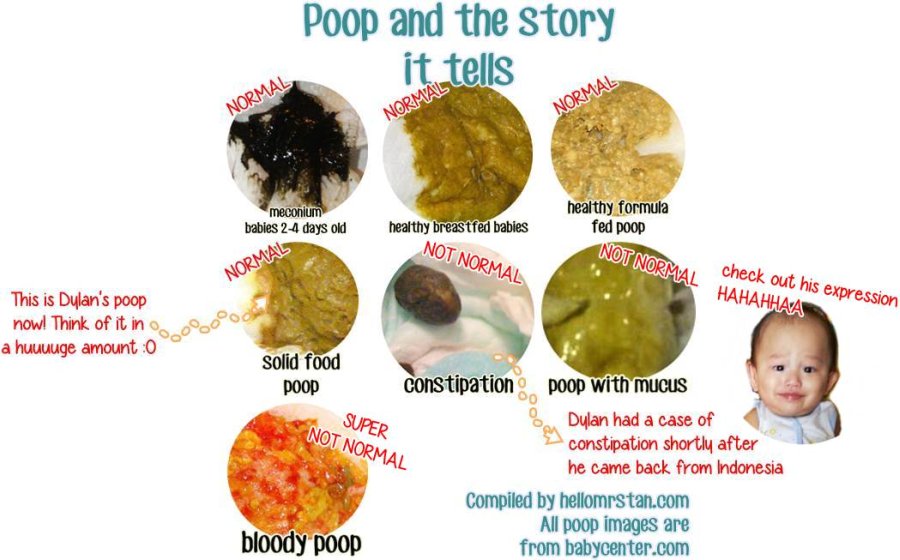 e. e. mixtures for the treatment of allergies, such as Nutrilon Pepti.
e. e. mixtures for the treatment of allergies, such as Nutrilon Pepti.
Other possible causes of constipation:
- Genetic predisposition - parental constipation
- Pathological course of pregnancy and childbirth
- Perinatal CNS injury
- Muscular hypotonia - due to various causes
- Prematurity
- Hypothyroidism
- Vitamin D hypervitaminosis
- Food allergy
- Intestinal dysbacteriosis
- Insufficient attention of the mother to the timely formation of the defecation reflex in the child
- Febrile constipation - your pediatrician should help with this
Why is constipation dangerous?
An increase in intra-intestinal pressure leads to pain syndrome, impairs evacuation from the small intestines, promotes the development of various refluxes, the normal composition of the intestinal microflora is disturbed, protein decay products appear in the intestine, which increase the functional load on the liver, and the risk of functional megacolon formation increases.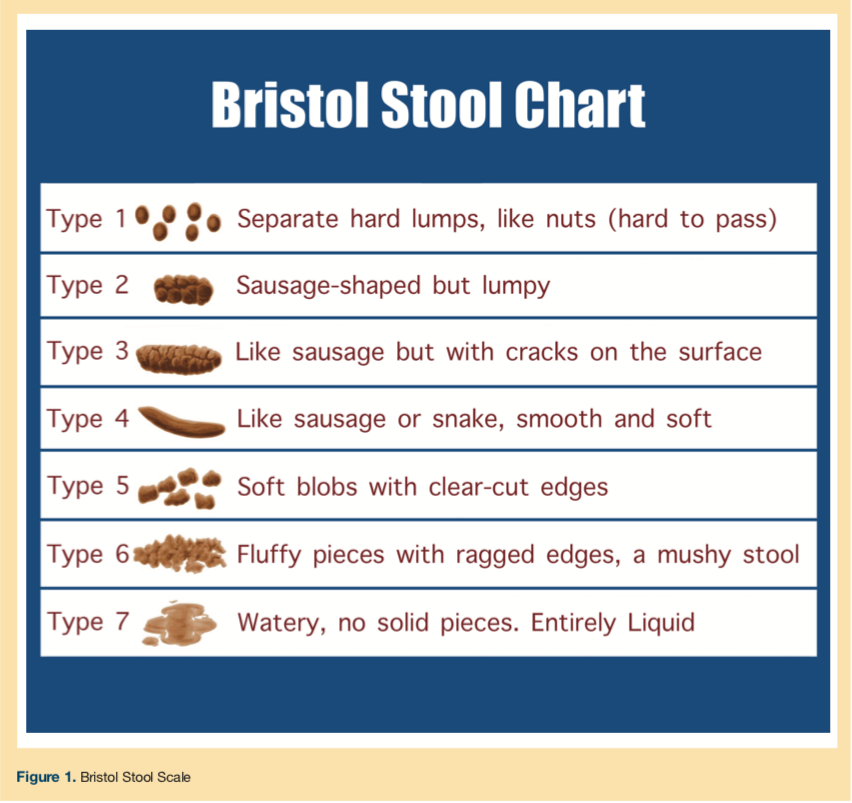 In children with constipation, intoxication may occur: appetite decreases, mood worsens, the child becomes irritable.
In children with constipation, intoxication may occur: appetite decreases, mood worsens, the child becomes irritable.
If the constipation is sufficiently persistent, then your doctor should exclude organic pathology: Hirschsprung's disease, dolichosigma, megarectum, megadolichosigma, polyps, intestinal tumors, adhesive disease and stenosis of the anorectal region.
Constipation in children is not usually a big problem, but if it lasts more than two weeks or there is fever, weight loss, refusal to eat, blood or large amounts of mucus in the stool, severe abdominal distention or swelling, vomiting of bile, pain during bowel movements, or rectal prolapse, decreased muscle strength/tone of the lower extremities - see a doctor as soon as possible.
Treating Constipated Babies - 7 Home Tips for Constipation
- Special Exercise: gently move the legs of the child who is lying on his back, imitating the movement of a bicycle.

- Give him a warm bath, this relaxes the abdominal muscles and relieves the discomfort associated with constipation. Your baby may poop in the tub, so be prepared.
- Pick up optimal nutrition . For a nursing mother, it is worth trying a diet with the exception of cow's milk, with artificial nutrition, choose a mixture that contains prebiotics galacto- and fructooligosaccharides, partially hydrolyzed protein, a fat component in the form of beta palmitate, and which has proven itself in clinical studies. If the baby is formula fed, check that you are adding enough water, double check that you are following the instructions on the formula jar correctly, make sure you are using the spoon that comes with the formula, make sure you are not tamping the powdered formula into the measuring spoon - this should be loosely filled and leveled with the flat side of a knife or the leveler provided. Make sure you add the water to the bottle first and then the powder mixture, this is important, otherwise you will add too little water to the bottle.
 In the diet, if age permits, you can include apples without skin, broccoli, oatmeal or whole grain bread, pasta, peaches, pears, plums, stewed prunes, stewed apricots and stewed vegetables.
In the diet, if age permits, you can include apples without skin, broccoli, oatmeal or whole grain bread, pasta, peaches, pears, plums, stewed prunes, stewed apricots and stewed vegetables. - Additional fluid . Young children get it from breast milk or formula. But constipation sometimes helps with a little water or, less commonly, diluted fruit juice when over 4 months old.
- Massage . Make circular movements on the stomach in a clockwise direction, without pressing hard on the stomach. Without fanaticism!
- Fruit juice. A small amount of diluted juice: 1 part juice to 3 parts water: apple or prunes 50-60 ml, this may relieve constipation. But check with your pediatrician first!
- Rectal irritation . Take a thin gas outlet tube, lubricate it well and insert it into the ass by 1-2 cm. But this cannot be done often, you can become addicted to such a procedure.
